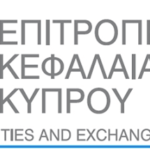Google Found Guilty of ‘Abusing Dominant Market Position’ in Russia

Russian antitrust agency will have 10 business days to issue its ruling on the case in full
Google Inc. has been found guilty in a rapid Russian antitrust probe, a spokesperson for the country’s antitrust regulator told The Wall Street Journal.
In February, Russia’s Federal Antimonopoly Service opened a probe into Google for alleged anticompetitive practices related to how the company bundles apps with its Android mobile operating system.
The company was found guilty of “abusing its dominant market position,” but not of “unfair competition practices,” the regulator told The Wall Street Journal.
The Russian agency will have 10 business days to issue its ruling on the case in full. “We haven’t yet received the ruling,“ Google’s Russia spokeswoman said. “When we do, we will study it and determine our next steps.”
Google has been tied up for several years in an antitrust probe in Europe. The Russian regulator’s decision, however, comes just under seven months after the probe was initiated.
The probe follows a complaint from Russia’s biggest Internet firm, Yandex NV, which accused Google of unfair practices. Yandex said that it “welcomes the positive decision by FAS which has figured out this complicated case and having studied the proof, has confirmed Google’s violations.”
A spokesman for Yandex said the company “believes that [the] FAS decision will help restore competition on the market.”
Following the ruling, Google faces possible mandates to change its agreements with phone and other device manufacturers to accommodate the concerns of Yandex and other developers. Google could also face an as-yet-unspecified fine.
Google’s share of Russian online search is lower than in most over countries, with Yandex controlling more than half of the market, according to data from Liveinternet.ru. So the adverse Russian antitrust ruling may not have a big impact on Google’s main search advertising business.
“The EU is a much bigger market for Google and their market share is much larger there so you have to take those comments more seriously than Russia’s,” said Ken Sena, an analyst at Evercore ISI. “For Yandex this is probably more of an event than for Google.”
However, Google has been gaining share and its Android operating system has more than a 60% market share in the country, according to data firm Statista Inc. Android is an important distribution tool for Google Search, especially as more people get online with smartphones rather than desktop personal computers.
The ruling comes as Russia and several other countries have cracked down on U.S. Internet companies, launching investigations into their market power and introducing new regulations that give them more access to and control of information and user data stored by these companies.
Google shut its engineering office in Russia in late 2014 ahead of a controversial law requiring Internet companies to store Russians’ personal data within the country’s borders. Some U.S. politicians and technology executives have warned that this may be about protecting homegrown technology companies or limiting dissenting political speech and protest online.
Still, Monday’s decision highlights regulation as one of the biggest risks facing Google. The company has been in the cross hairs of antitrust regulators for more than five years. In the U.S., the company settled with the Federal Trade Commission in early 2013 and agreed to change some business practices giving advertisers more flexibility to use other ad platforms along with its main search advertising service AdWords.
Later that year, South Korea’s Fair Trade Commission ruled Google had not harmed competition by requiring smartphone makers that offer Android to load Google’s search engine on their products.
The company is in the midst of an antitrust investigation by the European Union, which charged the company with abusing its dominance of the European online search market to favor its own shopping search service over those of rivals. The EU also launched an investigation of Android, including the rules Google imposes on phone makers to get access to Google services and apps.
Any phone maker can use Android. But if a phone maker wants to use popular Google services like Gmail or Maps, or wants access to Google’s Play app store—with millions of apps that make phones more useful—it must preinstall a package of these Google apps. This helps Google distribute its services widely to the more than one billion Android device users, but it can also mean phones come loaded with some apps that some users and phone makers may not want on the gadgets.
Google said in February that device makers “are free to install the apps they choose, and consumers always have complete control over the apps on their devices.”
Several device manufacturers that pre-install Yandex apps notified the company in 2014 that they were “no longer able to pre-install Yandex services,” such as Yandex’s search and map apps on Google’s Android devices, prompting Yandex to make a complaint to the antitrust authorities.
Google’s bundling practices have put Yandex “under threat,” the company said, hurting its search share on mobile devices in favor of Google. Yandex shares soared over 7% on the Nasdaq following the regulator’s decision.
Source: WSJ – Google Found Guilty of ‘Abusing Dominant Market Position’ in Russia


























